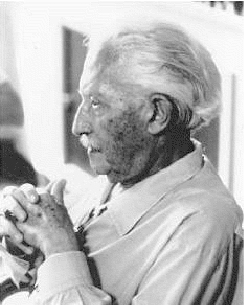| << Chapter < Page | Chapter >> Page > |
There are many theories regarding how babies and children grow and develop into happy, healthy adults. We explore several of these theories in this section.
Sigmund Freud (1856–1939) believed that personality develops during early childhood. For Freud, childhood experiences shape our personalities and behavior as adults. Freud viewed development as discontinuous; he believed that each of us must pass through a serious of stages during childhood, and that if we lack proper nurturance and parenting during a stage, we may become stuck, or fixated, in that stage. Freud’s stages are called the stages of psychosexual development . According to Freud, children’s pleasure-seeking urges are focused on a different area of the body, called an erogenous zone, at each of the five stages of development: oral, anal, phallic, latency, and genital.
While most of Freud’s ideas have not found support in modern research, we cannot discount the contributions that Freud has made to the field of psychology. Psychologists today dispute Freud's psychosexual stages as a legitimate explanation for how one's personality develops, but what we can take away from Freud’s theory is that personality is shaped, in some part, by experiences we have in childhood. These stages are discussed in detail in the chapter on personality.
Erik Erikson (1902–1994) ( [link] ), another stage theorist, took Freud’s theory and modified it as psychosocial theory. Erikson’s psychosocial development theory emphasizes the social nature of our development rather than its sexual nature. While Freud believed that personality is shaped only in childhood, Erikson proposed that personality development takes place all through the lifespan. Erikson suggested that how we interact with others is what affects our sense of self, or what he called the ego identity.

Erikson proposed that we are motivated by a need to achieve competence in certain areas of our lives. According to psychosocial theory, we experience eight stages of development over our lifespan, from infancy through late adulthood. At each stage there is a conflict, or task, that we need to resolve. Successful completion of each developmental task results in a sense of competence and a healthy personality. Failure to master these tasks leads to feelings of inadequacy.
According to Erikson (1963), trust is the basis of our development during infancy (birth to 12 months). Therefore, the primary task of this stage is trust versus mistrust. Infants are dependent upon their caregivers, so caregivers who are responsive and sensitive to their infant’s needs help their baby to develop a sense of trust; their baby will see the world as a safe, predictable place. Unresponsive caregivers who do not meet their baby’s needs can engender feelings of anxiety, fear, and mistrust; their baby may see the world as unpredictable.

Notification Switch
Would you like to follow the 'Chapter 4: life span development sw' conversation and receive update notifications?